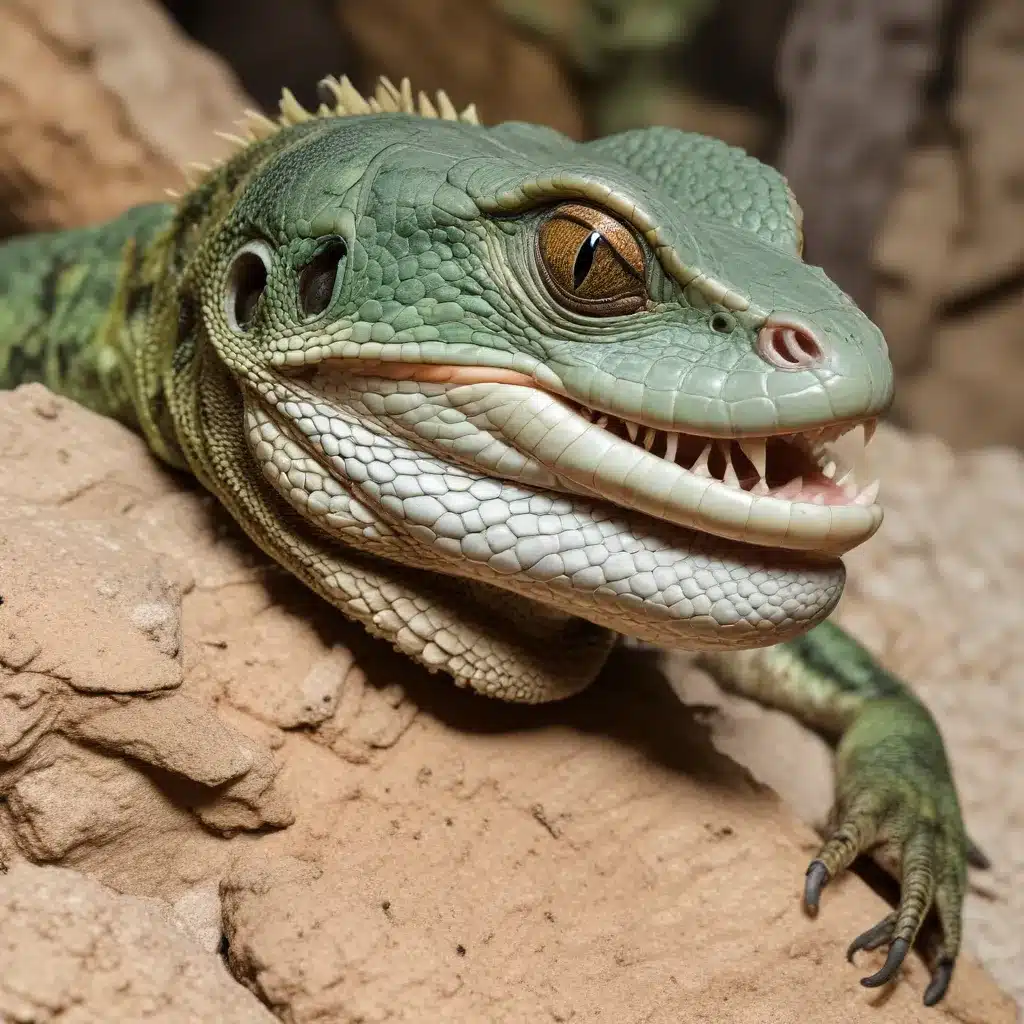
The Importance of Enrichment for Reptile Welfare
Caring for exotic reptiles requires a comprehensive understanding of their unique needs and behaviors. One crucial aspect often overlooked is the impact of the captive environment on a reptile’s neurological development and overall well-being. Recent research has shed light on the remarkable capacity of reptile brains to adapt and thrive when provided with the appropriate level of complexity and stimulation.
Contrary to popular belief, reptiles are not devoid of cognitive capabilities. Their brains, while structurally different from those of mammals, possess the same or homologous neural structures and neurochemical systems. This evolutionary continuity suggests that reptiles, including snakes, are capable of experiencing neuroplasticity – the ability of the brain to change and adapt in response to environmental stimuli.
When reptiles are housed in enriched environments that cater to their natural behaviors and provide opportunities for exploration, problem-solving, and social interaction, the positive impact on their brain development and cognitive abilities has been well-documented. In contrast, reptiles confined to barren, impoverished enclosures often exhibit signs of stress, such as stereotypic behaviors and reduced overall health.
Enriched environments for captive reptiles should include features that mimic their natural habitats, such as multiple levels, varied substrates, hiding spots, and opportunities for climbing, burrowing, and thermoregulation. By providing these elements, reptile caregivers can support the expression of species-typical behaviors and foster a more stimulating and enriching experience for their captive animals.
Reptile Breeding: Ensuring Genetic Diversity and Ethical Practices
Responsible reptile breeding is essential for maintaining healthy, genetically diverse populations. One of the primary considerations in reptile breeding is maintaining genetic diversity to avoid the detrimental effects of inbreeding, such as reduced fitness and increased susceptibility to disease.
When breeding exotic reptiles, it is crucial to obtain animals from reputable sources and maintain detailed records of lineage and genetic history. This information can help breeders make informed decisions to avoid close inbreeding and promote genetic diversity within their breeding programs.
In addition to genetic considerations, reptile breeders must also adhere to ethical practices that prioritize the well-being of the animals. This includes providing appropriate housing, nutrition, and veterinary care to ensure the health and welfare of the breeding stock and their offspring.
Breeders should also be mindful of the potential impact of their activities on wild reptile populations. Responsible breeders may opt to focus on captive-bred animals rather than collecting from the wild, which can help conserve endangered species and prevent the depletion of wild populations.
Legal Considerations for Reptile Ownership and Sales
The ownership and sale of exotic reptiles are subject to a variety of legal regulations and requirements, which can vary significantly depending on the species, geographic location, and intended use (e.g., private, commercial, or educational).
In many regions, the possession and trade of certain reptile species may be restricted or prohibited altogether, with specific permits or licenses required for ownership and commercial activities. It is crucial for reptile enthusiasts, breeders, and sellers to thoroughly research and comply with all applicable local, state, and federal laws and regulations.
Some key legal considerations include:
- Species-specific regulations: Some reptile species may be classified as endangered, threatened, or invasive, requiring special permits or prohibiting their ownership and trade.
- Commercial licensing: Individuals or businesses engaged in the breeding, sale, or import/export of reptiles may need to obtain specific commercial licenses or permits.
- Animal welfare regulations: Captive reptiles are often subject to animal welfare laws that dictate minimum standards for housing, care, and veterinary oversight.
- Permit requirements: Depending on the species and intended use, reptile owners may need to obtain permits or licenses to legally possess or transport their animals.
Failure to comply with applicable laws and regulations can result in significant penalties, including fines, confiscation of animals, and even criminal charges. It is the responsibility of all reptile enthusiasts, breeders, and sellers to stay informed and ensure they are operating within the legal framework.
Reptile Health and Veterinary Care
Maintaining the health and well-being of captive reptiles requires a comprehensive understanding of their unique physiological needs and common health conditions. Partnering with experienced reptile veterinarians is essential for providing appropriate preventative care, diagnosing and treating illnesses, and addressing any medical concerns that may arise.
Some key considerations in reptile health and veterinary care include:
Nutrition and Feeding: Reptiles have specific dietary requirements that can vary significantly based on species, age, and life stage. Ensuring a balanced and appropriate diet is crucial for supporting their overall health and development.
Environmental Factors: Factors such as temperature, humidity, and lighting play a critical role in a reptile’s ability to thermoregulate, digest food, and maintain proper physiological function. Proper habitat setup and monitoring are essential.
Disease Prevention: Captive reptiles may be susceptible to a range of infectious diseases, parasites, and other health issues. Establishing a preventative care routine, including regular veterinary check-ups and quarantine protocols for new animals, can help mitigate these risks.
Medication and Treatments: When reptiles require medical intervention, it is vital to work closely with a reptile-experienced veterinarian to ensure the appropriate medications, dosages, and treatment protocols are used.
By prioritizing reptile health and seeking professional veterinary guidance, reptile enthusiasts, breeders, and sellers can help ensure the long-term well-being of their captive animals.
Conclusion
Reptile care, breeding, and legal compliance are multifaceted topics that require a deep understanding of the unique needs and characteristics of these fascinating creatures. From providing enriched environments to promoting genetic diversity and adhering to legal regulations, a comprehensive approach is essential for responsible reptile ownership and management.
By staying informed, consulting with experts, and prioritizing the welfare of captive reptiles, enthusiasts, breeders, and sellers can contribute to the overall health and conservation of these remarkable species. Continuous learning, ethical practices, and a commitment to the well-being of reptiles under human care are the keys to ensuring a vibrant and sustainable future for the exotic reptile community.
For more information on exotic reptile care, breeding, and legal requirements, please visit ExoticReptilesForsale.com.

